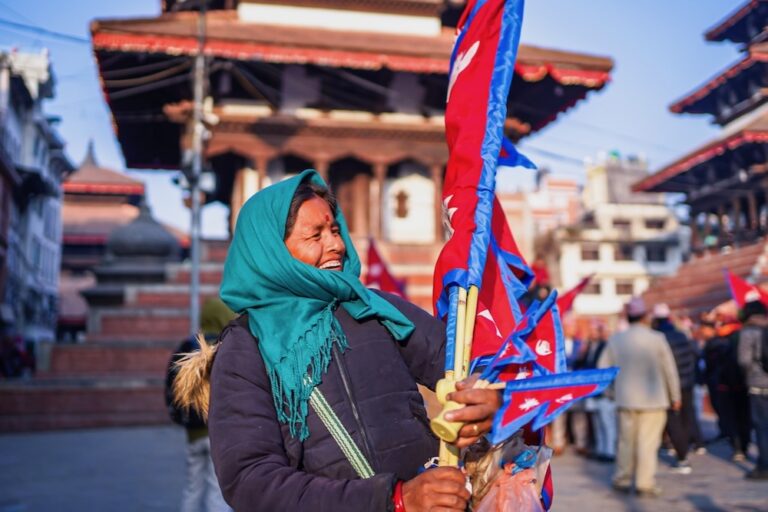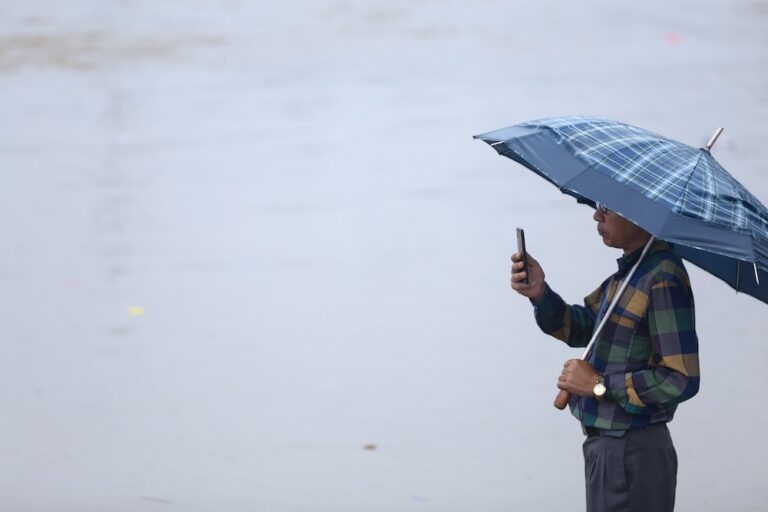(CEHURDES/IFEX) – The following is a 16 January 2002 CEHURDES press release: CEHURDES calls for the respect of citizens’ basic rights and asks that human rights activists and journalists be allowed to report impartially on the current situation Nepal has been under a state of emergency for the last two months. King Gyanendra declared the […]
(CEHURDES/IFEX) – The following is a 16 January 2002 CEHURDES press release:
CEHURDES calls for the respect of citizens’ basic rights and asks that human rights activists and journalists be allowed to report impartially on the current situation
Nepal has been under a state of emergency for the last two months. King Gyanendra declared the nationwide emergency as per the constitution of the Kingdom of Nepal, 1990, upon the recommendation of His Majesty’s Government of Nepal.
As provided by the constitution, almost all individuals’ fundamental rights have been suspended, except for that of haebus corpus, during the period of emergency. The government has already instructed the media not to report on anything that could undermine Nepal’s national sovereignty, constitutional monarchy and multi-party democracy, and encourage or incite violence. More than four dozen journalists have been interrogated, harassed or taken into custody by security personnel. Even human rights activists have been harassed by the security forces.
Though there is general support for the government’s decision to declare the state of emergency in order to confront the Maoist violence, people are worried about the possible misuse of authority by security personnel. Already, there are several reports about the killing of over a dozen civilians in Dang, Rolpa and in other parts of the country during security operations.
Neither the media nor human rights organisations have been allowed to conduct impartial investigations on the basis of on-the-spot study. Different political parties have set up committees to monitor the situation and possible human rights violations. But they too are confined to the comfort of the capital and have failed to constitute a joint monitoring panel to visit the affected areas. The National Human Rights Commission (NHRC) recently sent a team to mid-western Nepal to monitor the situation on the ground. The team has yet to return and make its report public.
CEHURDES has been closely monitoring the situation of human rights, violations of press freedom and freedom of expression since the declaration of emergency on November 26, 2001. It has been coordinating with international networks like IFEX and its partners to appraise the situation in Nepal worldwide and exert pressure upon the Nepali authorities. Members of IFEX and Amnesty International, among others, have appealed to the Nepalese authorities, including Prime Minister Sher Bahadur Deuba, to release detained professionals, journalists and innocent private citizens and to ensure that human rights activists and journalists be permitted to access certain areas and issue impartial reports on the ground.
Authorities say that they were forced to resort to the extreme measure of imposing the state of emergency after the Maoist rebels walked out of the peace talks unilaterally and started attacking government offices, looting banks and financial institutions and targeting the police and army.
CEHURDES urges the Nepalese government to ensure that its citizens’ human rights are protected and promoted. As a state party to the Universal Declaration of Human Rights (UDHR) and the International Covenant on Civil and Political Rights (ICCPR), it is the Nepalese government’s responsibility to protect and promote people’s fundamental human rights. The organisation would also like to appeal to the international community to monitor the human rights situation in Nepal in these difficult times and express support for the right of Nepalese people to exercise their constitutional rights without any hindrance.
Based on the aforementioned facts, CEHURDES calls upon the Nepalese government to:
a. Protect and promote citizens’ fundamental human rights based on constitutional human rights provisions and international human rights instruments ratified by Nepal.
b. Ensure that media workers and human rights activists have access to affected areas without any fear of intervention by security personnel.
c. Ensure that press freedom and freedom of expression are respected, allowing for the free and impartial flow of news, views and opinions.
d. Protect the rights of private citizens who are not involved in the conflict from alleged atrocities by the security forces.
e. Protect the lives of common citizens, political workers and innocent people from the Maoist insurgents who have recently been implicated in murdering or seriously injuring individuals on the basis of their faith.
Recommended Action
Similar appeals should be sent to:
Rt. Hon. Sher Bahadur Deuwa
Prime Minister
Prime Minister’s Office
Singh Durbar, Kathmandu
Nepal
Fax: +977 1 227286
Hon. Khum Bahadur Khadka
Minister for Home Affairs
Singh Durbar, Kathmandu
Nepal
Fax: +977 1 225156
Hon. Jaya Prakash Prasad Gupta
Minister for Information and Communication
Singh Durbar, Kathmandu
Nepal
Fax: +977 1 221729
Pradip Shumsher JB Rana
Inspector General of Police
Police Headquarters
Naxal, Kathmandu
Nepal
Fax: +977 1 415593
Please copy appeals to the source if possible.


